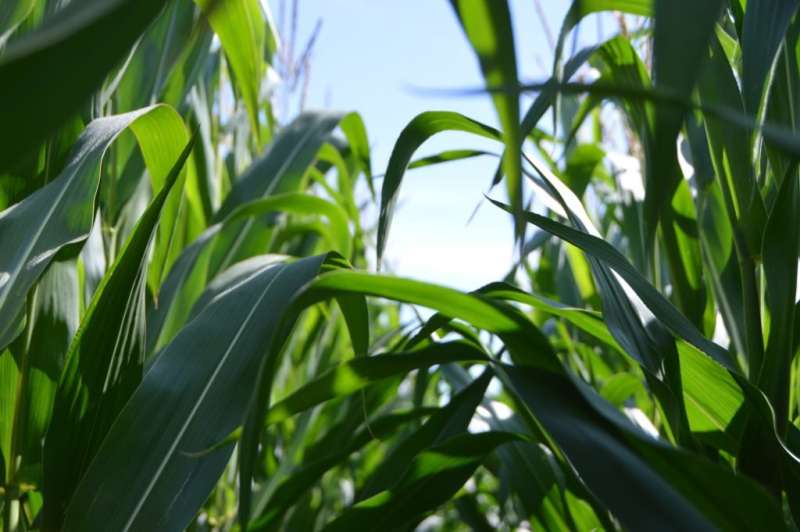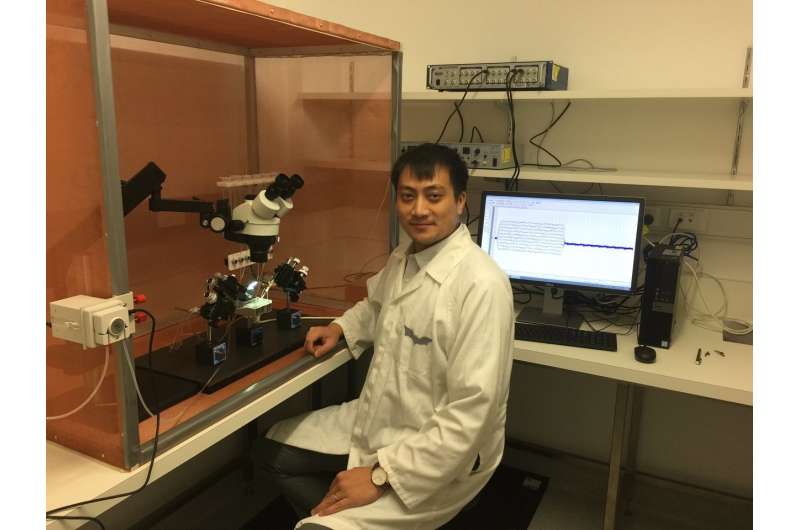Growing more food with less fertiliser

Researchers have found the key to increasing the rate at which maize absorbs nitrogen in the lab, a crucial step in growing higher yielding crops while using less fertiliser.
"Nitrogen is an essential nutrient for plant growth," explains researcher Dr. Zhengyu Wen from the University of Sydney. "Crops absorb nitrogen from fertilisers and the soil through a group of proteins called nitrogen transporters."
However most crops don't use nitrogen very efficiently, with more than 50 per cent of applied fertiliser wasted.
Not only is this expensive, agricultural fertiliser run-off can also lead to serious environmental problems such as freshwater pollution, and unused nitrogen can escape into the atmosphere as nitrous oxide, which is a potent greenhouse gas.
By manipulating one amino acid in the transporter protein, the researchers were able to increase the nitrogen uptake rate of the protein, and at the same time reduce its ability to transport chloride. This is important because chloride can cause salt stress in plants.
Currently the research has only been conducted in the lab, but the researchers hope they'll be able to replicate their results in a real maize plant.
"If it works, it will improve both the nitrogen use efficiency and the salt tolerance of maize," says Zhengyu.
"Ultimately, we hope our research will help farmers grow more food while using less fertiliser, and thereby causing less pollution."

Provided by Freshscience















